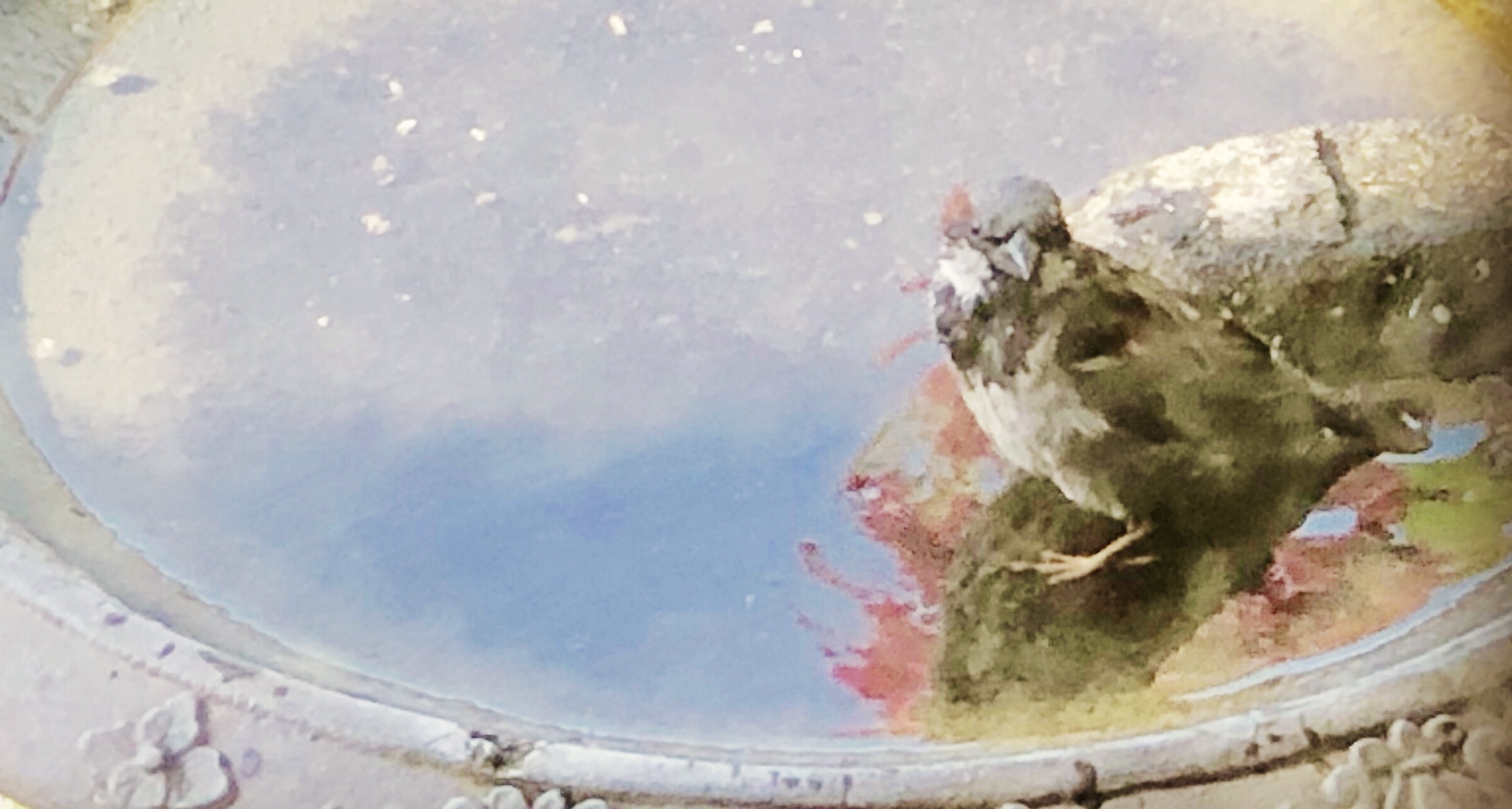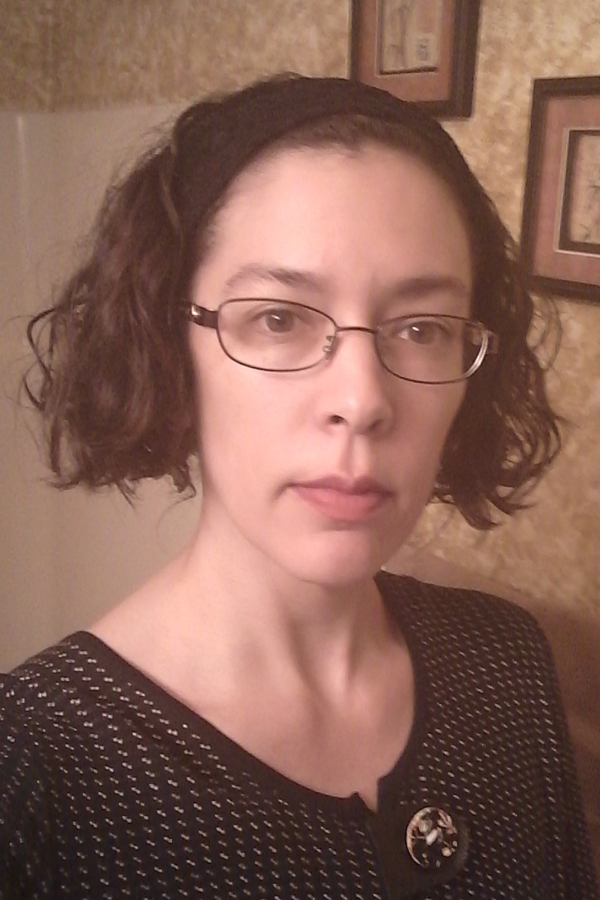"Being the Murdered Student" by Cathy Ulrich
Being the Murdered Student
The thing about being the murdered student is you set the plot in motion.
You’ll be late for dinner. Your baby sister and your father will eat without you, quiet except for the hum of the corner fan, your mother leaving her plate and yours bare, dinner covered on the stove. Your mother will see sparrows in the yard; the yard will be blanketed by sparrows, and she’ll tap her finger against the window, breath fogging the glass, think collective nouns, think knot, quarrel, flutter. She’ll hear your name in the whisper of their chirping mouths, feel the beginning of something leaving the inside of her, a hollowing in her chest, and the phone will ring.
When the phone rings, the sparrows will take flight, all at once, rush of wing clap, shout of feather, and your mother will watch them empty from the yard, hand pressed to chest, trying to hold that hollowing in.
She’ll answer the phone — your baby sister will be practicing her viola lesson, and your father never picks up after seven — and when the man on the other end of the line identifies himself as Dep. Mulvaney and says: I’m sorry, your mother will hang up reflexively.
Your mother will hang up the phone and begin to keen, wail until she can barely breathe, until only the gasping hollow in her chest is left, and your baby sister will lay down her viola, and your father will mute the television, and, again, the telephone will ring.
Your plate will be bare on the table, the knife and fork and spoon your pouting baby sister laid out nestled against each other. Your mother will scoop them all up in one hand, drop them into the dishwasher with everything else, run the dishwasher, settle into its rhythmic hum, say God, say God, say God again.
Your baby sister will leave her viola on the bench beside her, bump her elbow against it when she goes for her phone, texts her friends: My sister, my sister.
Your baby sister will leave the viola on the bench all night, will fall asleep on the hardwood floor beneath it, kidney bean-curled, phone in one hand, other hand fist-tucked under her chin. She’ll wake sore. She’ll think of going to school, she’ll remember the sound of the ringing telephone, how she has always hated it, how she would, and you would, pick it up and slam it back down when your parents weren’t home, over and over, until the calling finally stopped. Your baby sister will drag her bow across the viola’s neck, will play something by Brahms after those first yowling morning notes, Sonata in E-flat Major, eyes closed, going up on tiptoes.
Your mother will be standing in the kitchen, standing all night, emptied dishwasher door open, how many times she ran into it with her shins in the night putting dishes away, how her legs are covered in bruises, one thick welt, how she still didn’t shut the door. How she ran the vegetable peeler over the knuckles of her left hand, how she thought replace her pain with mine, replace her pain with mine, how she said God God God, how it was really a prayer.
And your father will still be in the den, wake to the sound of Brahms, stiff-necked couch-sleeping, realize the television has been playing all night: the sunshine smiles of the morning newscasters, the steaming cups of coffee on their desks.
He will go to the kitchen and your baby sister will go, and your mother will be there at the window, left hand cold-rinsed clean, right hand, right side of her face pressed to the glass, watch her breath become fog there.
Look, she’ll say.
Look, the sparrows have returned.
Cathy Ulrich
Cathy Ulrich is always asking her mother, “what kind of bird is this?” The answer is always “sparrows.” Ulrich’s work has been published in various journals, including Pithead Chapel, Passages North, and Black Warrior Review.
Headshot: Cathy Ulrich
Photo Credit: Staff


